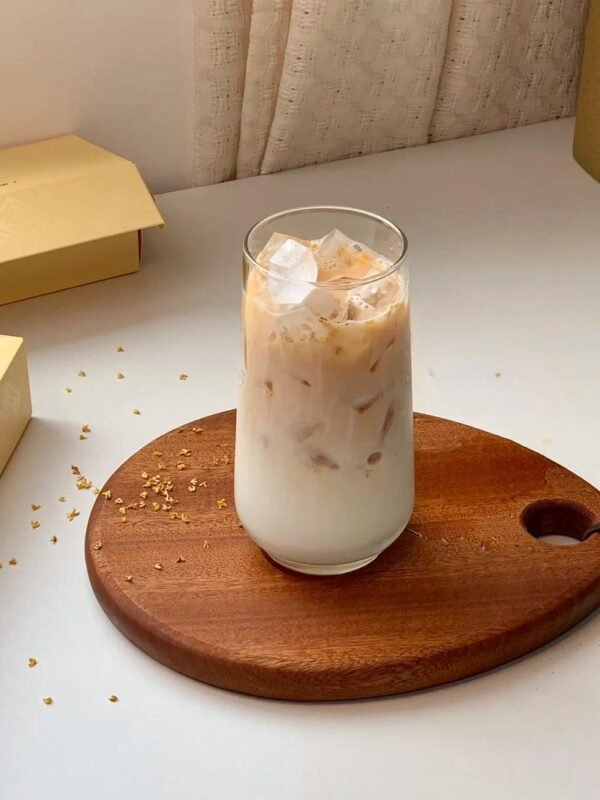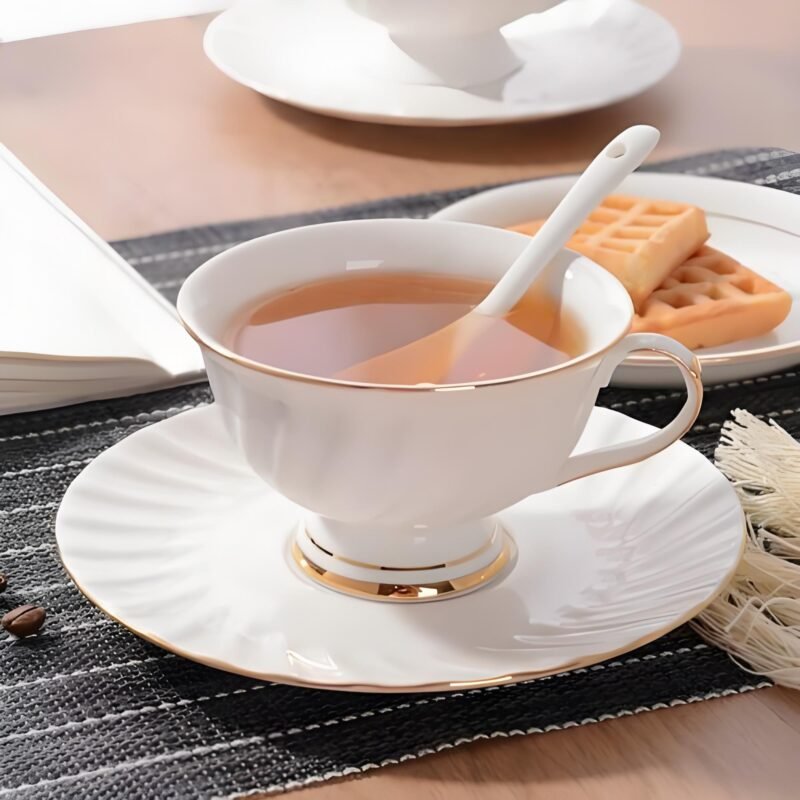Is tea healthier than coffee?

Is tea healthier than coffee?
Is tea healthier than coffee?
From the perspective of relieving diseases
both have their own advantages, but from the perspective of increasing energy, tea is better! The antioxidant and anti-aging properties of tea are better than those of coffee. Tea polyphenols (such as catechins) are powerful antioxidants. The anti-aging effect is 18 times stronger than vitamin E. It can delay cell oxidation, reduce inflammation, and reduce the risk of cardiovascular disease. Research shows that drinking 3 cups of tea (or 6-8 grams of tea) per day can significantly delay the rate of biological aging.

Tea is richer in nutrients and oxygen. Tea contains tea polyphenols, theanine, vitamins (such as vitamin C, vitamin E, B vitamins, etc.), minerals (such as potassium, calcium, magnesium, iron, zinc, etc.) and other nutrients. Tea polyphenols have various physiological activities such as antioxidant, anti-radiation, anti-aging, lowering blood lipids, lowering blood sugar, and inhibiting bacteria and enzymes. Theanine can promote the release of dopamine in the brain center, help relieve mental stress, and improve concentration and memory.
The types of tea are rich and diverse: there are more than 300 kinds of tea in China, which can be divided into six categories: green tea, black tea, oolong tea, white tea, yellow tea, and dark tea. Each category contains many different varieties. Different types of tea have great differences in appearance, aroma, taste and efficacy, and can meet the needs of different consumers. The flavor of tea is more unique and varied, ranging from fresh floral, fruity, grassy, to rich caramel, chocolate, nutty, etc. Moreover, the flavor of tea will change with factors such as tea variety, origin, picking season, processing technology, etc. Each tea has its own unique flavor characteristics.
The history of tea is even longer. China is the hometown of tea. Tea culture has a long history and has a history of thousands of years. In ancient times, tea was not only a drink, but also closely related to religion, philosophy, literature, art, etc., forming unique cultural forms such as tea ceremony and tea art. The way of drinking tea is flexible. Tea can be drunk hot or cold; it can be drunk directly after brewing, or other ingredients such as lemon, honey, milk, etc. can be added to make various tea drinks. In addition, tea can also be used in cooking, such as making tea eggs, tea porridge, tea dishes, etc., to increase the flavor and nutrition of food. In terms of cancer prevention, both parties have advantages:
Breast cancer: The tea polyphenols in tea, especially epigallocatechin gallate (EGCG), can inhibit the growth and proliferation of cancer cells, regulate estrogen metabolism, and reduce the risk of breast cancer.
Prostate cancer: Tea polyphenols can induce apoptosis of prostate cancer cells, inhibit tumor angiogenesis, and regulate androgen metabolism, playing a positive role in preventing prostate cancer.
Lung cancer: Tea polyphenols can play a preventive role in lung cancer by inhibiting the proliferation of tumor cells, inducing apoptosis, inhibiting tumor angiogenesis, and anti-oxidation.
Gastric cancer: The ingredients in tea can inhibit the growth of Helicobacter pylori and reduce its damage to the gastric mucosa. It can also inhibit the proliferation and invasion of gastric cancer cells.
Liver cancer: The antioxidant effect of tea can reduce liver oxidative stress damage, reduce inflammatory response, inhibit the growth and proliferation of liver cancer cells, and induce their apoptosis.
Colorectal cancer: Tea polyphenols can regulate the balance of intestinal microflora, inhibit the production of carcinogens, and also inhibit the proliferation and metastasis of colorectal cancer cells.
Coffee may have certain preventive effects on certain cancers: Liver cancer: Various components in coffee, such as caffeine and chlorogenic acid, have antioxidant and anti-inflammatory properties, which may help reduce damage and inflammation of liver cells and reduce the risk of liver cancer.
Colorectal cancer: Coffee can promote intestinal peristalsis, help expel harmful substances, and reduce their contact time with the intestinal mucosa, thereby potentially reducing the risk of colorectal cancer. In addition, the antioxidants in coffee may also play a role in preventing colorectal cancer.
Breast cancer: Studies have found that caffeine and other ingredients in coffee may affect the metabolism of estrogen in the body, thereby inhibiting the occurrence of breast cancer.
Prostate cancer: Antioxidants and other bioactive components in coffee may help inhibit the growth and proliferation of prostate cancer cells. Endometrial cancer: The caffeine in coffee may affect hormone levels in women, thereby producing a certain preventive effect on endometrial cancer.
From the perspective of the energy of the five elements, tea is better than coffee. Coffee belongs to fire, while tea belongs to the five elements. The leaves of tea belong to wood, the color of tea belongs to water, the taste of tea belongs to earth, and the function of tea belongs to metal. So good tea is a holy product. In China, the birthplace of tea, the ancient oriental country, tea is called the tea ceremony, not just the tea leaves. China’s 5,000-year-old civilization has emphasized Taoism and nature. Although tea leaves satisfy people’s taste preferences, the tea ceremony is the essence.
Good tea contains “the essence of heaven and earth”, which can improve the “essence” of the person who drinks it, help us open our orifices, connect to the universe, understand Tao, turn on our own energy switch, and enhance our own energy.
Why do Chinese people never brew real good tea in tea bags? On the contrary, it would be considered impolite in China to serve guests with tea bags in tea bags. Because good tea is in its most natural state with less artificial intervention. The graceful and graceful shape when brewed in the cup is its best packaging. Every moment of brewing, the color, shape, quality and taste are all unique, and it is also a process of energy release. Therefore, good tea has spiritual energy. It is by no means simply satisfying the desires of the mouth and tongue, but helping us open the body’s connections and increase energy is the core.
The tea of Danzhu Jieluo is not chosen from self-cultivated tea gardens, because the spiritual tea must come from wild ancient tree tea with “plentiful spiritual energy in the ground and long and lush trees” and is processed using ancient methods. Therefore, it is purely wild, 0 pesticide residues, 0 additives, and absorbs the essence of local ancient tree tea. These tea trees have been rooted in the soil for hundreds or even thousands of years, absorbing the essence of the earth and protecting the secrets of the years. Due to environmental and time constraints, the amount of ancient tree tea picked each year is extremely limited. Of course, such tea trees are relatively rare, so every gram of Danzhu Jieluo’s tea is an orphan, collection grade, and cannot be mass-produced. It can only be supplied in limited quantities. Some ancient tea trees even need to be booked a year in advance. Being able to buy it is a blessing.
Danzhujueluo’s Lingcha wild ancient tree tea is full of “essence, energy and spirit”, so the taste is even better.
Tea without essence, qi and spirit is just a cup of artificial drink with no vitality or blessing energy value. The tea from ancient trees, which possesses vitality and spirit, is the best product for health preservation, energy enhancement, spiritual practice and enlightenment.
The “Essence” of the Danjujueluo Wild Ancient Tea Tree The “Essence” of the ancient tree tea has a pure aroma. The unique mountain breath penetrates the nostrils, refreshing the heart and spleen, opening the channel for the integration of man and nature. The “Essence” of the Danjueluo Wild Ancient Tea Tree. Qi has important functions in the human body such as promoting metabolism, warming the internal organs, defending against external evils, absorbing essence and blood, and transforming nutrients. “Human life depends entirely on this Qi.” If Qi can flow endlessly, like a ring without any end, the human body will be healthy and disease-free.
Only when the local aura is sufficient, the “qi” of the ancient tea tree will be strong and the aura will be particularly strong. After long-term drinking, the body will be smooth, full of energy, and energetic.
Danzhujueluo ancient tree tea has strong Qi and vitality. When we drink this ancient tree tea quietly, people with a transparent and sensitive body will feel the heat surge in the body, bursts of heat and sweat from the upper or lower parts of the body, and even obvious air flow in the body. Sweating on the spine of the back, Baihui point on the top of the head, and Yongquan point on the soles of the feet are surging with heat. This is the “tea Qi” of the ancient tree. The body is activated by tea gas, and long-term drinking can enhance body permeability and increase energy.
The “divine feet” of Danzhujueluo wild ancient tea tree Danzhujueluo wild ancient tea tree can enter the heart and enlighten people’s soul. Whenever we quietly taste this pure land wild ancient tree tea, the whole person feels relaxed. As the tea soup reaches the throat
The tea gas stimulates and flows to all parts of the body, and the body naturally circulates and penetrates. People with a pure mind can appreciate the mystery of the ancient tree tea, and have beautiful pictures emerge, outline, and produce beautiful scenery in their minds, or the whole person’s subconscious drifts into the ancient tea forest. This is the “charm” of the ancient tree tea, and it is also the perfect artistic conception experience that the ultimate ancient tree tea can bring. It is a holy product for spiritual practice.





